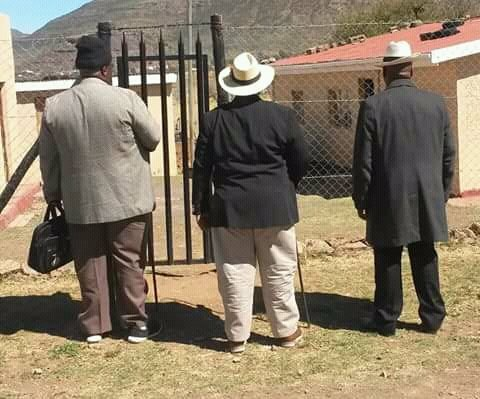#LobolaThread: Lobola is a token of appreciation to the bride’s parents for raising a woman for the groom and should not be a chance to make a quick buck. There is a Xhosa saying that goes ‘One never stops paying lobola’. #IdloziMemoirThreads
Meaning that the family link is the important part of lobola, as it is a union that must be constantly renewed by visiting one’s in-laws and inviting them around and in general, maintaining a cordial relationship between both families. #IdloziMemoirThreads
It is not a mere cultural tradition as is erroneously believed. It is a deeply symbolic non-negotiable African religious rite performed by most people of African origin.
The principal intention of African marriage rituals, which center around the payment of roora/Lobola and its associated rituals, is to communicate with foregone ancestors.
This is regardless of whether the participants believe in the spiritual symbolism or not and whether they know what they will be doing when they perform the marriage rites. The intention is to communicate with their ancestors, whether they do this consciously or unconsciously.
How do you communicate unconsciously with ancestors in the process of Lobola? It starts with the negotiations which are carried in the main house, the same house that is used when brewing African beer, the rules are ancestrally applicable.
Ancestors are present throughout all those proceedings. It is the same as paying for damages, it is an ancestral significance progress more than it is the physical one.
The communication is to notify them of the merger of the 2 different families and the blending of lineages. The groom will be symbolically asking his ancestors to receive a new person into their fold, who will blend and dilute their lineage through the offspring they may produce.
The bride’s family, on the other hand, will be informing her ancestors, including great grandfathers’ mothers, aunts, and uncles that one of their own is leaving the nest to join another family and form a new lineage.
This is the symbolism and significance of the payment of roora/lobola and its associated rituals, whether one subscribes to traditional African religions or not. You must note everywhere, Xhosa, Shona, Zulu African rituals/traditions are symbolic. They are more than the physical.
Lobola has subliminal spiritual symbols that are ancestral, some people who have bypass Lobola have even gone as far as dreaming their ancestors asking them “bafuna nani to the husband’s place because they have never received Lobola for the wife to be there.
Every stage of Lobola and Traditional wedding links back to ancestors, its subliminal symbolic. Lobola is ancestral based just like paying damages is ancestral based. Many people have dreamed of ancestors instructing them to pay damages, even being angry for not paying damages.
For instance in the IsiXhosa culture when a man iyozimasa kwenye indlu, xa izazisa phana. Iqale izithuthe ithi ngu "Gatyeni, Mamali, Ndondela, Nkomo zibomvu etc
now in that introduction the most important part xa isithi "ifayidukhwe emzini wam zikhanywa yintombi yasemathileni (mentioning the wife's clan name). It is essential to mention the wife's clan name in African rituals a husband attends.
This acknowledges that he doesn't walk with his ancestors alone but also his wife's ancestor. That is spiritual, in African spirituality we never walk with our ancestors alone, we walk with our wife's ancestors too hence it's important to acknowledge.
It is misleading to argue that Lobola and Damages ain't spiritual/ancestral. I have witness people's ancestors being angry, distant becoz Lobola was never paid, a marriage ends up collapsing. Every stage of Lobola is ancestral symbolical. #IdloziMemoirThreads
When uncles are doing this at the gate, they not only want to be allowed physically to enter but it is a spiritual symbolic sign that even namadlozi of those uncles should be welcomed in a proper cultural way to enter the house. Every Lobola stage is spiritual, ancestral symbolic

 Read on Twitter
Read on Twitter


